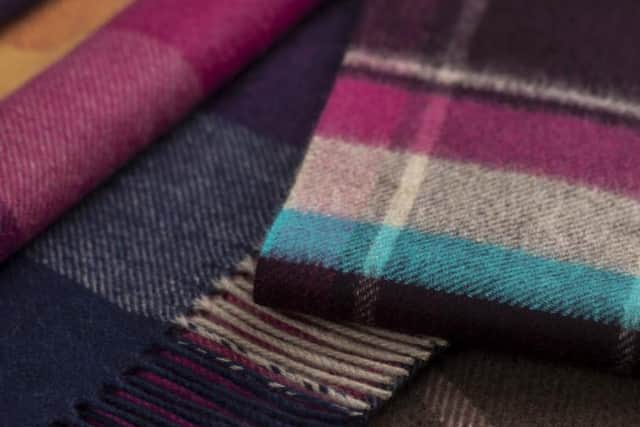Amazon in settlement with cashmere group after 'counterfeit' allegations
The Cashmere and Camel Hair Manufacturers Institute (CCMI) took legal action against the firm, alleging that some of the garments it was selling were not even made from cashmere, but instead consisted of pure acrylic, a much-less expensive and flammable material.
Its complaint, filed in a US court, claimed that by distributing, advertising, and selling the products, Amazon was violating various laws around false advertising, designation of origin, and intellectual property rights.
Advertisement
Hide AdAdvertisement
Hide AdBut on the eve of the trial, Amazon and the non-profit institute, whose members include famous Scottish luxury textile names such as Johnstons of Elgin, and Kinross-based Todd & Duncan, reached an agreement.
No details were given on the financial implications of the settlement, other than that each party would “bear its own fees and costs.”
In its original complaint, the institute said it had purchased 18 sample products from Amazon which purport to be cashmere scarves, some of which have tartan plaid designs and branding claiming they were made in Scotland.
After subjecting them to analysis, the institute said, its experts concluded that none of the scarves contained any cashmere at all.


Its complaint stated that Amazon was notified in 2019 and again in 2020 that the garments were mislabeled, but that the retailer failed to address the problem, or even remove the goods from sale on its sites.
The complaint explained: “Instead, Amazon expanded and increased its marketing and sale of the purported cashmere garments, to the point where they now have a very substantial presence on Amazon’s websites throughout US and abroad, notwithstanding the information they have received that these garments are not cashmere.”
It also warned that those Scottish firms with a long heritage of producing cashmere were being disadvantaged by the sale of the “fake garments,” adding: “The mislabeling of the purported cashmere garments as ‘made in Scotland’ when they are not causes similar harm, because Scotland has a good reputation for high quality spinning and knitting of genuine cashmere garments.”
The legal action, which was also directed against CS Accessories, a New Jersey firm which sells a variety of garments, insisted that it was “virtually impossible” to put a figure on the financial damage caused to the institute and its members, but described it as “serious and irreparable.”
Advertisement
Hide AdAdvertisement
Hide AdThe case was set to go to trial at US District Court in Massachusetts on 7 December, but the CCMI announced that it would not be working together with Amazon.
Fabio Garzena, the institute’s president, said: “The CCMI and Amazon have resolved their dispute and look forward to collaborating to protect the interests of cashmere customers, manufacturers, and sellers.”
In a statement, the institute added: “CCMI’s legal action presented a number of important intellectual property and competition law issues related to the advertising and sale of counterfeit products over the internet in the international marketplace.”
Amazon did not respond to a request for comment from Scotland on Sunday.
